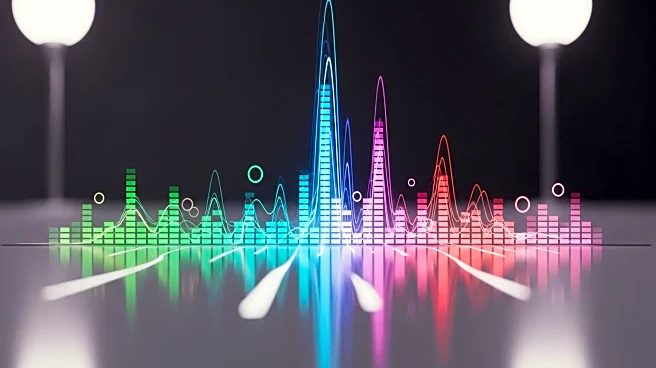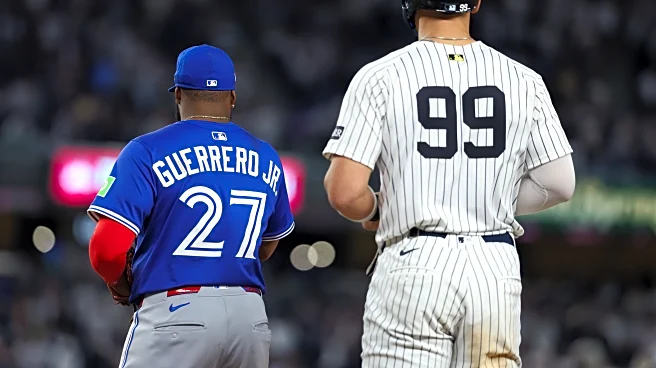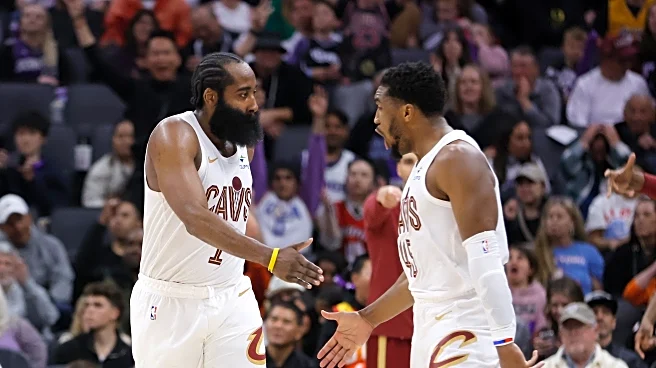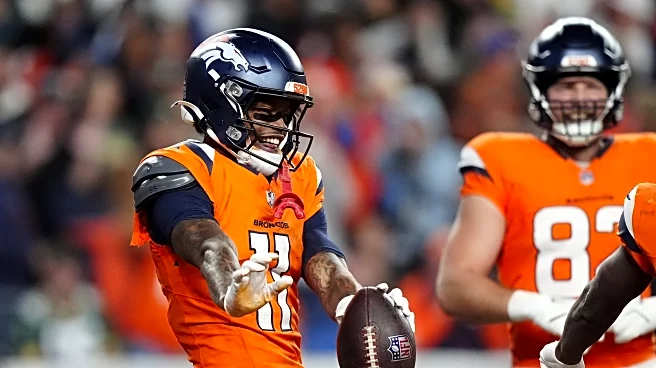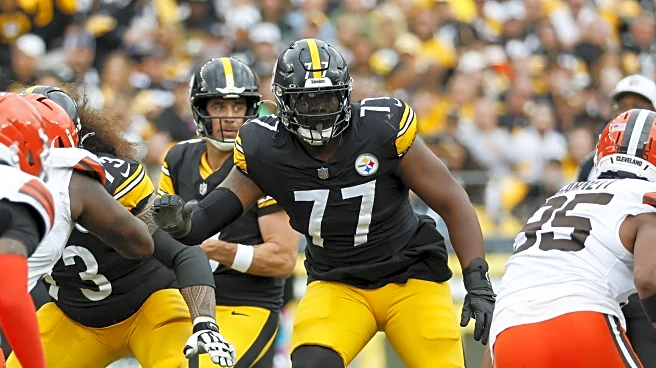What's Happening?
Puerto Rican superstar Bad Bunny has experienced a significant increase in music streams following the announcement of his performance at the 2026 Super Bowl halftime show. According to Luminate, a data and analytics company, Bad Bunny's on-demand streams in the United States rose by 26%, from 173 million to 218.5 million, in the days following the announcement. This surge reflects the artist's growing popularity and the anticipation surrounding his upcoming performance. Bad Bunny, known for his Spanish-language music, has been a vocal advocate for Latino culture and issues, which he plans to highlight during his Super Bowl performance.
Why It's Important?
Bad Bunny's selection for the Super Bowl halftime show is a landmark moment for Latino representation in mainstream American entertainment. His performance is expected to showcase the richness of Latino culture to a global audience, potentially influencing perceptions and increasing visibility for Latino artists. The increase in music streams indicates a growing interest in Latin music, which could lead to more opportunities for Latino artists in the U.S. music industry. This development also highlights the evolving nature of cultural representation in major American events, reflecting broader societal shifts towards inclusivity and diversity.
What's Next?
As anticipation builds for Bad Bunny's Super Bowl performance, it is likely to generate further interest in his music and increase his influence in the U.S. market. The performance could pave the way for more Latino artists to be featured in high-profile events, promoting cultural diversity in entertainment. Additionally, Bad Bunny's advocacy for Latino issues may inspire discussions on immigration and cultural identity, potentially influencing public policy and societal attitudes.
Beyond the Headlines
Bad Bunny's upcoming performance at the Super Bowl may have deeper implications for cultural diplomacy and the role of entertainment in bridging cultural divides. By showcasing Latino culture on a global stage, the event could foster greater understanding and appreciation for diverse cultural expressions, contributing to a more inclusive society.
